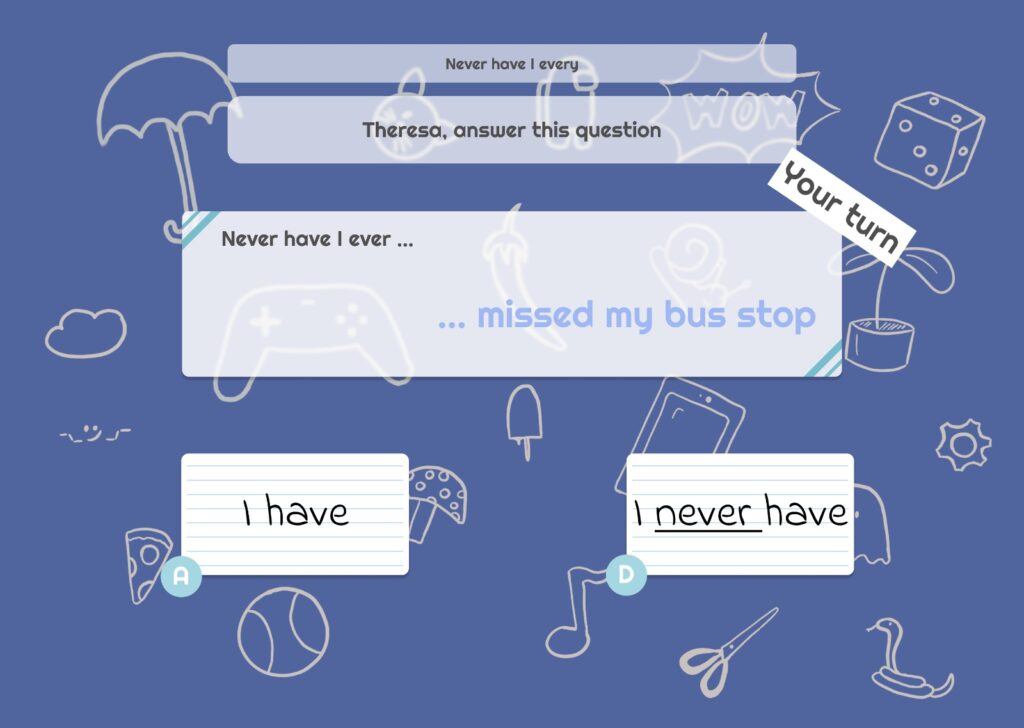Video games have been an important part of our live for a long time already. People spend increasingly more time online, so it is only natural that they meet online and use chat and voice channels as their only tool for communication.
Often, you do not see the other persons face, hands, or body language in general. But human being do not only communicate through speech, so what happens if major parts of the human to human communication are lacking? Can people online build bonds as strong as they are when people meet in real life?
Over the past few months, I have been developing a game called Pandoras Box. The goal of the game is to get to know a person better and find out new things about them. To achieve this, two players are asked questions that become increasingly more personal or challenging to answer. Games that have similar objectives or include similar features are “Awkward”, “Jackbox Games” or “Never have I ever”. These games, however, all lack important aspects that are mandatory for a good experience.
A majority of the actual game play happens while the two players are discussing their answers in a voice channel on common platforms like Discord or Teamspeak. The game consist of 10 rounds where a question is asked to each player every round. After the question was asked to the first player, the second player has to guess the answer of the first player – if they get it correct, they get a point. Even though at the end of the game, the score is displayed to the players, the game is not about winning or losing but about getting to know more about the person.

Pandoras Box game can be used to analyse how missing communication parts like facial expressions and gestures affect the depth of the conversation in an online voice channel.
Is it possible to hold a conversation with as much meaning and depth online during a game as it is in person?
What are the differences in communication styles and how do player adapt their speech to the situation.
To answer these questions, players will be asked questions about their game partner before and after playing a few rounds of Pandoras Box to evaluate psychological aspects of understanding and empathizing with another person.
Sources:
- Understanding Human Communication
- The impact of voice in an Online Gaming Community
- Voice in Virtual Worlds: The design, use and influence of voice chat in online play
- Voice-only communication enhances empathic accuracy
- A Comparison of Offline and Online Friendship Qualities at Different Stages of Relationship Development
- Exploring similarities and differences between online and offline friendships
- Trust and Hyperpersonal Communication in Online Friendships